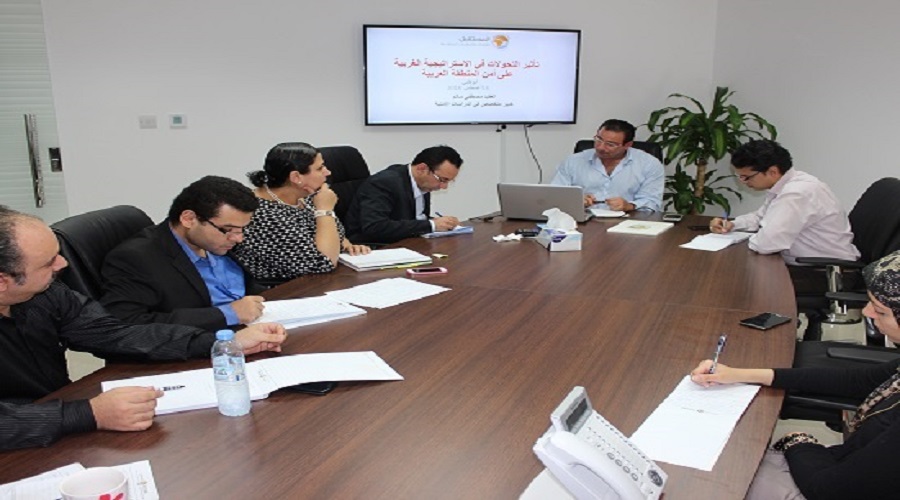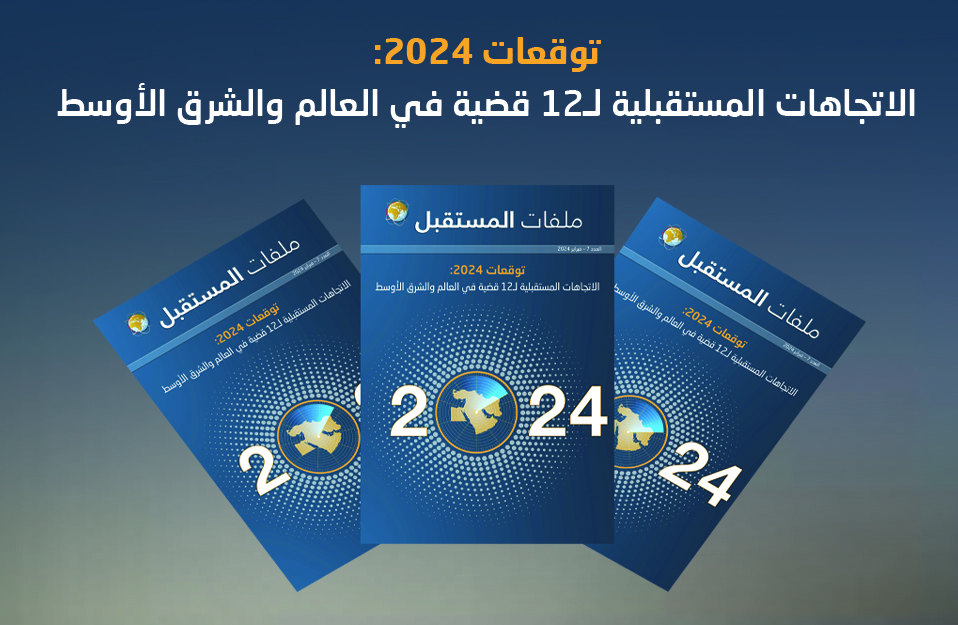Clearly, the Arab world is witnessing radical changes that started since before the U.S. occupation of Iraq in 2003. The new era is characterized by rising influence of regional actors, particularly Turkey and Iran, in the Arab-Arab interactions, and all the critical issues that dominated the Middle East. Then the region began to see new phenomena still incomplete since the breakout of the “Arab Spring” in 2011 until now. This period has witnessed a tangible change in the roles of the outside actors within the region, especially the Iranian-American rapprochement, and its potential consequences on regional interactions as a whole.
In this context, Future for Advanced Research and Studies (FARAS) hosted Mr. Moustafa Salem, the expert specialist in the regional security affairs and security affairs advisor, to give a lecture on the 14th of August, 2014, about the most prominent transformations in the foreign actors’ roles in the Arab region.
The U.S. Dependence on Turkey:
Mr. Salem began his lecture by stressing that vital U.S. interests in the Arab region, especially the protection of Israel and oil flows and the preservation of the friendly Arab regimes, have not changed following the occupation of Iraq in 2003, except for the stability of the friendly regimes. The U.S. think tanks devised multiple plans to dismantle and reform the whole region in order to divide it into many small states that can be dealt with easily.
George W. Bush administration tried to make huge changes in the region, using several tools, the most prominent of them are attempts to give the Shiite thinking a higher hand over the Sunni one, foment sectarian differences, allow Iran to strengthen its regional influence, exert pressure on Egypt and Saudi Arabia and some other Arab states to introduce political reform and guarantee return of Islamic radicals and terrorists with whom Washington coordinated during their presence in Afghanistan, Bosnia, Kosovo, Herzegovina, and Algeria, to their home countries, in the hope that this may end the idea of fighting the “far enemy”.
During this period, the U.S. has been keen to maintain a tight control over regional interactions. Also, it has intervened in an unprecedented way in the Arab internal affairs. It chose Turkey to depend on during this period, as Ankara managed to present itself as a modern Islamic model. Recep Tayyib Erdogan succeeded in convincing the West to promote the Turkish model as the most moderate one. Hence the U.S. and Turkey agreed to back political Islam groups, especially the Muslim Brotherhood (MB). This agreement has been supported by Britain, Italy and Spain. Thus the rise of Islamic groups started with the emergence of new concepts, such as democratization and the “Big” Middle East in 2004/2005, with full support from Turkey. Turkish intervention increased in different regional affairs, such as the Israeli-Palestinian conflict, Iraq and the support shown to what Ankara and Washington considered as moderate groups of political Islam.
This period (2003-2011) witnessed two basic transformations, according to Mr. Salem. First: Iran’s influence reached the Mediterranean and witnessed huge expansion in a way that harmed some Arab and regional parties, while its dispute with Washington and Tel Aviv about its nuclear program continued. Second: Washington basically depended on Ankara to execute its plan of the “Big Middle East” and in strengthening groups of the political Islam. Moreover, Turkey turned into the gate of new military and security arrangements in the region, among them the missile shield and some intelligence activities.
Redirecting the Iranian Role:
Soon after the breakout of the Arab “revolutions”, some major transformations emerged in the roles of foreign actors in the Arab region. The Turkish-MB alliance failed following the 30th of June, 2013 revolution in Egypt, while the Egyptian-Gulf alliance reemerged on firmer ground. Thus the Turkish role has seen a grave setback that will continue for some time. On its part, the U.S. policy intended to achieve a number of goals, among them: not to militarily intervene in Syria and to deplete its abilities by pushing it into a prolonged internal conflict and make up for the failed Turkish role by redirecting the Iranian role within the region by containing it then turning it into the new regional proxy instead of Turkey.
Washington seeks to do this through a number of steps, including:
1. Weakening the Iranian regional axis (Syria, Hizbullah and Hamas). To do this, there are attempts to prolong the conflict in Syria, in order to deplete the abilities of this axis. Then Israel launches a war against Hamas to further weaken it.
2. Sealing an agreement with Iran to curb its nuclear ambitions. To achieve this, international and American sanctions were imposed on Iran to force to enter serious negotiations with the West. These negotiations are supposed to give birth to new arrangements that strengthen the Iranian role in region.
3. Depleting Iranian abilities in the Arab Mashreq, particularly the Syrian conflict, besides pushing Hizbullah to move out of its strong bases in Lebanon and launch a war of attrition against Hamas. This means the return of Tehran to the Gulf as the basic region for its influence after the Mashreq and the Mediterranean, in order to create new balances to compete with the Egyptian-Gulf axis.
Basic Determinants of the Future of Foreign Intervention:
Mr. Salem concluded by stressing some notices:
1. It is expected that Turkey will not have an effective role during the coming period. Erdogan will be preoccupied by internal conflict around the new constitution. Also, Turkey will lose its popularity in the region, wile its axis that depends only on Qatar will be weakened.
2. The Iranian role will rise in the Gulf to make up for its losses in the Mashreq. Iran will be a source of threat to the Gulf security, especially if the deal with the U.S. fails.
3. The lecturer stressed the need for an Arab action to deal with Qatar, the Gulf’s Achilles heel.
4. The U.S. presence in the region will continue, while Washington will try to curb the Iranian nuclear program in return for rising Iranian influence in the Gulf.
5. Arabs should not fully depend on the new actors in the region, particularly Russia. Although common interests dominate the Arab-Russian relations at present, history tells us that Russia, during the Cold War, proved to be unreliable ally. True regional balance can be achieved by strengthening the Gulf-Egyptian-Jordanian alliance, and seeking to enlist other countries, Arab and foreign, in order to promote regional stability.
6. Directing more attention to the red Sea security, as it is a region with strong Israeli and Iranian influences, which affect Arab security in this vital area, especially the Yemeni state that is already liable to division.
Finally, the lecturer stressed that Tehran remains a main threat, not a competitor, and that we still face a problem related to the limits of the Iranian role, which is related to the mutual concessions between Tehran and Washington. On the other hand, an Arab axis emerges that aims at curbing outside interventions and preserve regional balances as much as possible and Arab countries that face grave internal challenges.
** This Article is translated and edited from Arabic to English by: Marwa Sabri.



